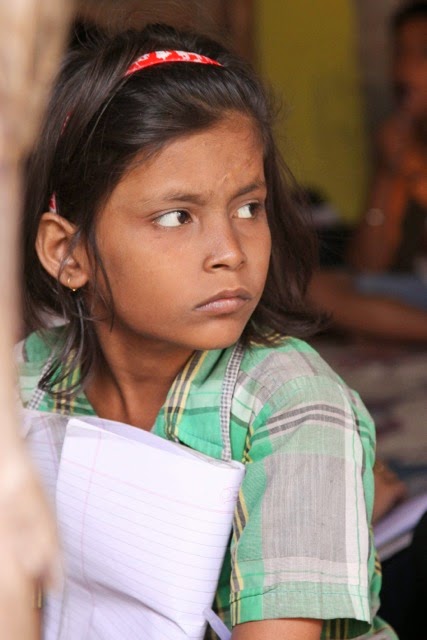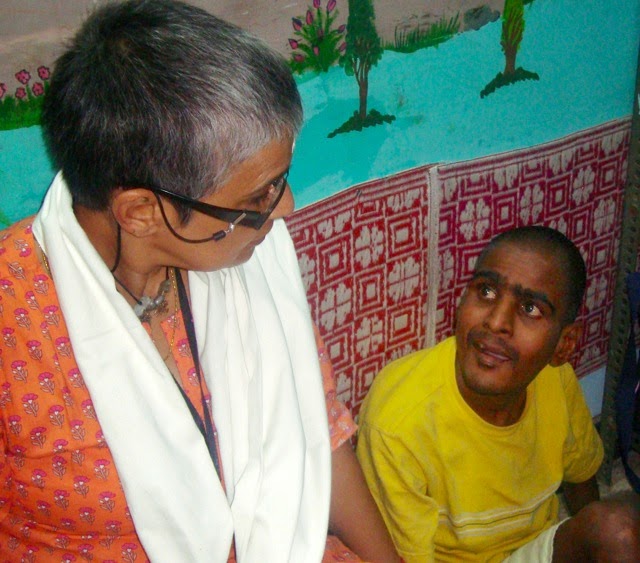We were recently asked to put up a proposal for funding. The proposal had to be for something different and relevant to our times. After some pondering and brainstorming we decided to once again walk the extra mile and requested funding for a series of workshops on sex education and gender equality. The proposal was well received and we were asked asked to provide details about how we would approach the problem. Easier said than done as how do you talk about sex education in a patriarchal society where sex is so taboo that if we do not run our workshops carefully, we incur the risk of having parents remove their children from project why. Yet it is imperative that children lean about these issues at the earliest.
If there is one thing that needs to come out of the closet it is sex education!
The number of rape and abuse of children in homes and even schools, both considered ‘safe’ places, is mind boggling and as long as the code of silence which is de rigeur in patriarchal societies is not busted, children will continue suffering in deafening silence in the name of honour or any such inanity.
Sex education in India is banned. And even if it is imparted it is done so with reluctance. Parents leave it to schools; schools outsource it; in some cases teachers skip the chapter asking the child to read it at home! An excellent video gives you a taste of what sex education looks like in India. Do view it if you can.
In privileged homes maybe things are a little better, but in slums and poor homes where parents are illiterate, the silence that surrounds sex can be dangerous. They live in cramped homes where they ‘see’ and ‘hear’ sex and abuse. They grow up thinking that sex and even abuse is a duty for girls and a right for boys.
Conversation on sexuality, if there is conversation, focuses on abuse never on the positive aspects of sex and sexuality. Sex education is an absolute must and politicians have to step out of their comfort zones and skewed political agendas and act. Age appropriate sex education should be an integral part of school curricula if we want to aspire to a healthy society. Band aid and knee jerk solutions are not the answer.
Now the problem that arises is how does one address the situation and come up with the right way to impart sex education in the given scenario.
What we intend doing is having a series of workshops for both students and teachers. Th subjects we inter covering would range from ‘good touch bad touch’ to the importance of ‘consent’. One needs to start telling children at a very early age that it is important to ask a play mate before touching them; teach children empathy and the importance of not hurting another; teach them to help someone who is in trouble. It is also very important that a child be taught to say NO and STOP and to honour the same when they are told these words. If your NO is not heard than we must teach the child to think whether she or he is feeling safe and good. It is also important for children to learn about their bodies and use correct words and not words that carry negative images as is often the case.
Older children need to be taught about body changes and that these changes are natural. Their self esteem has to be built and the importance of consent. It is also important to talk about hormones and how the may affect our thinking. It is also important to encourage them to ask the questions that bother them and answer them honestly. As most if not all these children cannot discuss these matters with their parents, our teachers have to be trained to be mentors. It is an uphill task wrought with dangers but that needs to be tacked head on. I guess we will have to craft the ‘syllabus’ as we go on.
The other burning issue is undoubtedly gender equality. I personally believe that there are two main issues that seem to have not been addressed as they probably do not mesh with existing societal realities. The first one is to address the X Y chromosome theory that would, if understood, liberate women from the erroneous perception of being the ones who determine the sex of the child and thus are ‘responsible’ if the child they bear and give birth do is a girl and not a boy. I wonder why this has never been a loud and blaring campaign. It is time men and their mothers realised that the wife/daughter-in-law is not at fault and thus does need to be blamed. And talking of mothers-in-law, we must accept that gender inequality is first and perhaps foremost perpetuated by women: mothers and grand mothers and other women in the family who treat their sons/grandsons differently than their daughters. This is highly visible in a daily pattern that may vary but that is nevertheless present. The boy child is treated like a prince where the girl is more Cinderella’s sister. It is there that it all begins and thus there that it needs to be stemmed.
The same discourse is present in our school books and often perpetuated by teachers: Sunil is confident and will make a good leader; Asha is caring and she will make a good mother. These stereotypes may look innocent but can be damaging. And look at fairy tales where the Prince saves the Princess. It is important to remember that sex is a biological fact and gender is a social construct. Boys and girls do not have any natural psychological or social differences, but it is society that makes them learn gender roles. It is for teachers and educators to balance the equation and have gender neutral teaching material.
When I was in class 6, I attended a lycée in Rabat. It is was a mixed lycée but what was interesting is that both boys and girls attended housekeeping and sewing classes as well as carpentry and electrical repairs one and no one felt that it was wrong. That was way back in 1962! Maybe that is a first step one could take in project why too.
The other discourse that could be followed is to be gender neutral when talking of professional options. The best chefs, hairdressers, couturiers and make up artist are often men, and women excel in many of the professions considered male prerogatives.
In an interesting article, Aparna Rayaprol states that: Institutionalisation of patriarchy in the various agencies of socialisation such as family, school, media, religious, legal, and political institutions allow individuals to become transmitters of gender biases. The school is one place where such institutionalisation takes place in a very subtle way. Only teachers can confront patriarchy by consciously helping children to become good citizens of the world. The first step is to make an equal world in the classroom. It is time project why became an equal world.
Gender sensitisation is not about pitting women against men. Gender sensitive education benefits both sexes. To get long lasting effects, I believe that the first step is to train teachers who then can create the ideal environment for students. Training teachers who come from patriarchal homes is no mean task. The first step would be to build a conducive and unthreatening environment for candid and spontaneous participation where stereotypes and biases can be clarified. This entails understanding the difference between gender and sex and sharing real experiences. The next step would be to analyse how stereotypes are perpetuated by the teachers and work out doable alternatives. A variety of interactive tools would need to be evolved along the way.
It is time to come out of closet!














